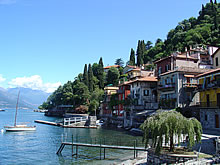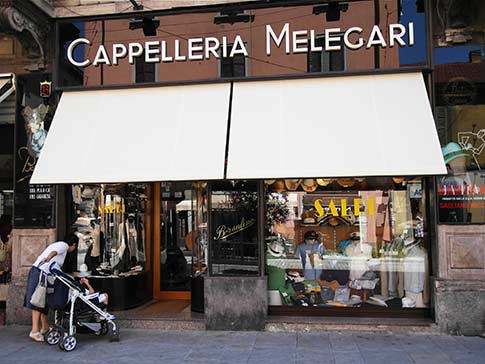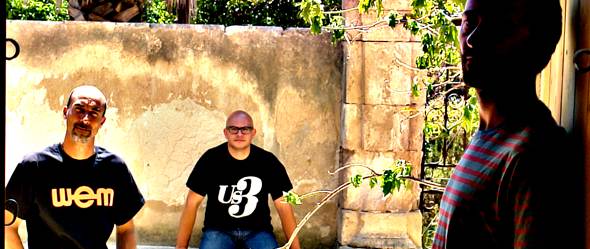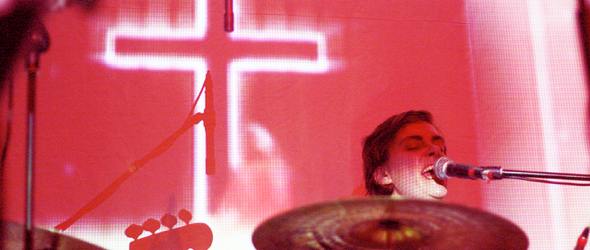Italy expects its 89 year old President Giorgio Napolitano to step down soon. That Mr Napolitano will actually go has been neither confirmed nor denied officially though it seems likely.
Reportedly, the date of Mr Napolitano’s departure will coincide with the end of Italy’s presidency of the Council of European Union which is due to finish at the end of 2014. Mr Napolitano may announce his resignation at around the same time. It will then be time for Italy’s parliament to choose a new president. The question is, who? Before engaging in a little speculation, here’s a little background on how presidents of Italy are chosen and how Giorgio Napolitano ended up becoming president of Italy for an unprecedented second term.
Choosing Italy’s Presidents
Traditionally in Italy, when a left leaning government is in power, a right leaning President is chosen and vice versa. Indeed, Giorgio Napolitano, a former communist (reputedly with links to fascism in Italy), was voted into power while Silvio Berlusconi’s right leaning party was running Italy on the 15th May 2006. In theory, Mr Napolitano should have been replaced in 2013 but owing to widespread disagreements and numerous inconclusive votes in Italy’s parliament, Mr Napolitano ended up becoming Italy’s president for a second term.
At the time, Mr Napolitano was reluctant to allow himself to be reelected and was more or less forced into accepting a second term because he was the only person Italy’s parliament and representatives of Italy’s 20 regions could agree upon. After he was proposed as a candidate, Mr Napolitano received 738 of the 1007 possible votes and became Italy’s president once more. At the time, April 20th 2013, Mr Napolitano hinted that he would not see out his second seven year term.
Italy’s presidential election process is as follows:
According to the Constitution, the election must be held by a secret ballot, with the 315 Senators, the 630 Deputies and the 58 regional representatives all voting. A two-thirds vote is required to elect on any of the first three rounds of balloting; after that, a majority suffices. The election is presided over by the Speaker of the Chamber of Deputies, who calls for the public counting of the votes. The vote is held in the Palazzo Montecitorio, home of the Chamber of Deputies, which is expanded and re-configured for the event. – President of Italy entry – Wikipedia.
Giorgio Napolitano’s reelection in 2013 annoyed Beppe Grillo, the leader of Italy’s 5 Star Movement, who claimed there’d been what amounted to a coup d’état by Italy’s political old guard. Certainly, the reelection of old guard politician Mr Napolitano was a victory for Italy’s old guard political establishment. It was also a potential blow to the 5 Star Movement which President Napolitano appeared (and still appears) to detest even though he’s supposed to be impartial.
Napolitano – Great Mediator or the Devil Incarnate
Depending upon who you speak to, Mr Napolitano is either the great mediator or the devil incarnate. His opponents refer to him as Re Giorgio – King George – which is a reference to what is seen by some as his direct meddling in Italy’s affairs in order, it is claimed, to protect Italy’s institutions (from what, nobody really knows), something which Italy’s presidents are not supposed to do.
Without Mr Napolitano’s supposed interference though, in late 2011 Italy may have ended up being taken over by the Troika – the European Commission, the European Central Bank and the International Monetary Fund after Silvio Berlusconi was ousted and Italy was teetering on the brink of a debt crisis. The fear at that time was that Italy’s default could have had major economic repercussions which may have spread throughout the European Union and beyond. For a while, it looked as if Italy may have been ‘taken over’ in order to put its accounts in order.
Arguably, it was President Napolitano who managed to keep Italy afloat during this stormy period and thus keep the Troika out of Italy. For this, Italy may owe Mr Napolitano a debt of gratitude. Others, mainly the 5 Star Movement, are not overly happy with the way he has conducted Italy’s affairs.
Impeaching the President
The 5 Star Movement wanted to impeach Mr Napolitano for passing unconstitutional laws, some of which helped prop up Silvio Berlusconi, and for his alleged role in state-mafia negotiations in Italy in the 1990s. The attempt to impeach Mr Napolitano came to nothing. Now, though, further attempts to depose King George of Italy may not be necessary if he does indeed resign at the end of 2014 or in early 2015.
The big question is, who will succeed King George Napolitano? Nobody really knows, though it is likely that someone with strong links to Italy’s political old guard will end up as Italy’s next president.
The Contenders
One contender is former Italian Prime Minister Romano Prodi and it’s looking as if Italy’s current premier Matteo Renzi may favor Prodi. However, the leader of Italy’s right leaning Forza Italia party, another ex Italian prime minister, Silvio Berlusconi, detests Mr Prodi because he’s not considered ‘friendly’. In other words, Mr Prodi would be unlikely to pass laws which might help protect Mr Berlusconi, his business interests, and his associates.
Mr Berlusconi, on the other hand, favors Giuliano Amato, yet another former Italian premier. Mr Berlusconi seems to think Amato may relieve him of his legal woes and may even grant him a pardon for his tax fraud conviction. Amato is the presidential candidate Italy’s right wants to push though nobody else seems too keen on this choice owing to Amato’s association with Italy’s troubled political past.
Berlusconi Wants His Say

Stop reading, start speaking
Stop translating in your head and start speaking Italian for real with the only audio course that prompt you to speak.
Silvio Berlusconi is determined to have a say in the choice of Italy’s next president and has stated that his choice of president is part of the Nazareno pact between himself and Italy’s current prime minister, Matteo Renzi. While Mr Renzi himself has not denied this is the case, others in his party have. That won’t stop Berlusconi attempting to influence the decision though. Indeed, he will push as hard as he can for someone who he sees as a ‘friend’.
Other Potential Presidents of Italy
There are some other possible candidates. Radical party politician Emma Bonino is considered by some as a possible choice, as is European Central Bank boss, Mario Draghi. Rumor has it that Draghi may be on the point of leaving the ECB.
Others potential candidates include old guard Democratic Party stalwarts Walter Veltroni, Piero Fassino and Anna Finnochiaro.
Both Mr Fassino and Ms Finocchiaro have a few skeletons in their closets. Mr Fassino is mixed up in ‘Bancopoli’ which appeared to have been a clandestine attempt by Italy’s left to acquire a bank. Ms Finocchiaro, on the other hand, is linked to suspect situations in Sicily; her husband is facing charges of abuse of office and fraud in connection with activities linked to his wife.
Another person seen as a possible candidate is Roberta Pinotti, Italy’s defense minister. Just why she should be in the running is not at all clear. Aside from one stint as minister of defense, Ms Pinotti has held no other high political office nor does she appear to have achieved much for her nation.
The Outsiders
There are quite a number of others who may be in the running. Italy’s economy minister Piercarlo Padoan is one and former leader of Italy’s PD Democratic Party, Pierluigi Bersani is another.
Last but by no means least, is Silvio Berlusconi himself who would dearly love to be Italy’s next president. However his fraud conviction and expulsion from Italy’s senate plus other pending court cases more or less exclude Mr Berlusconi from the running. If Mr Berlusconi were to be chosen, Italy’s credibility in the eyes of the world would fall to below zero as Italy will well know.
At the end of the day though, nobody has any idea who might end up succeeding Giorgio Napolitano although Italy’s political old guard will be fishing for someone who is prepared to keep them afloat and prime minister Renzi is likely to assist them in this aim.
The more skeletons in closets a potential presidential candidate has, the greater the chance of his or her election as Italy’s new president. Skeletons, you see, render potential new presidents much more malleable.
Only the 5 Star Movement is likely to present someone who they believe has the interests of Italy’s population at heart. So far though, the 5 Star Movement has not nominated anyone though the movement will be discussing names, one is certain.
The Election Process
From the numbers, electing a new president of Italy is not going to be an easy process unless one of the candidates is acceptable to most of those with a right to vote – this, though, is unlikely. Italy’s left leaning factions won’t be able to win the vote on their own and making matters less certain are the 101 PD party voters who may not tow the official party line.
There are lots of other wildcards on both sides of Italy’s blurred political spectrum. The 5 Star Movement has enough votes to push the presidential election one way or another though its votes may not be required to ensure someone is elected. However, if the whole of the PD party and the 5 Star Movement can agree on a mutually acceptable candidate, the combined weight of their votes could swing the day. Only time and the choice of candidates will tell.
The Outcome
What is, alas, much more likely, is that whoever ends up as Italy’s next president will be selected purely because he or she will place the interests of Italy’s political classes above those of Italy’s citizens. Should this happen, it won’t help Italy fix its many problems.







